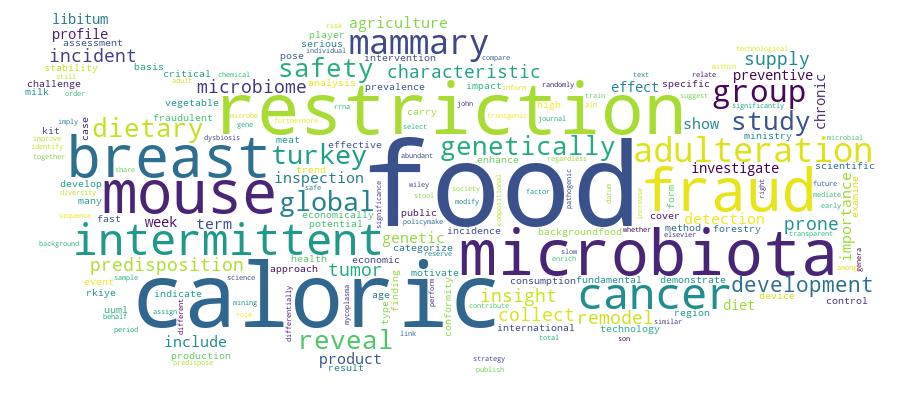Balcı, Tuğçe Nur
Loading...
Profile URL
Name Variants
T. N. Balcı
Tuğçe Nur, Balcı
T.,Balcı
B., Tugce Nur
T., Balci
T.N.Balcı
Balcı,T.N.
Balci,T.N.
Tuğçe Nur Balcı
B.,Tuğçe Nur
B.,Tugce Nur
Balci,Tugce Nur
B., Tuğçe Nur
Balcı, Tuğçe Nur
Balci, Tugce Nur
T.N.Balci
T. N. Balci
Tugce Nur, Balci
Tuğçe Nur, Balcı
T.,Balcı
B., Tugce Nur
T., Balci
T.N.Balcı
Balcı,T.N.
Balci,T.N.
Tuğçe Nur Balcı
B.,Tuğçe Nur
B.,Tugce Nur
Balci,Tugce Nur
B., Tuğçe Nur
Balcı, Tuğçe Nur
Balci, Tugce Nur
T.N.Balci
T. N. Balci
Tugce Nur, Balci
Job Title
Araştırma Görevlisi
Email Address
tugce.balci@atilim.edu.tr
Main Affiliation
Nutrition and Dietetics
Status
Website
ORCID ID
Scopus Author ID
Turkish CoHE Profile ID
Google Scholar ID
WoS Researcher ID
Sustainable Development Goals
3
GOOD HEALTH AND WELL-BEING

1
Research Products
17
PARTNERSHIPS FOR THE GOALS

1
Research Products

This researcher does not have a Scopus ID.

Documents
4
Citations
3

Scholarly Output
2
Articles
2
Views / Downloads
8/46
Supervised MSc Theses
0
Supervised PhD Theses
0
WoS Citation Count
3
Scopus Citation Count
3
WoS h-index
1
Scopus h-index
1
Patents
0
Projects
0
WoS Citations per Publication
1.50
Scopus Citations per Publication
1.50
Open Access Source
1
Supervised Theses
0
Google Analytics Visitor Traffic
| Journal | Count |
|---|---|
| Journal of the Science of Food and Agriculture | 1 |
| Nutrition | 1 |
Current Page: 1 / 1
Competency Cloud


